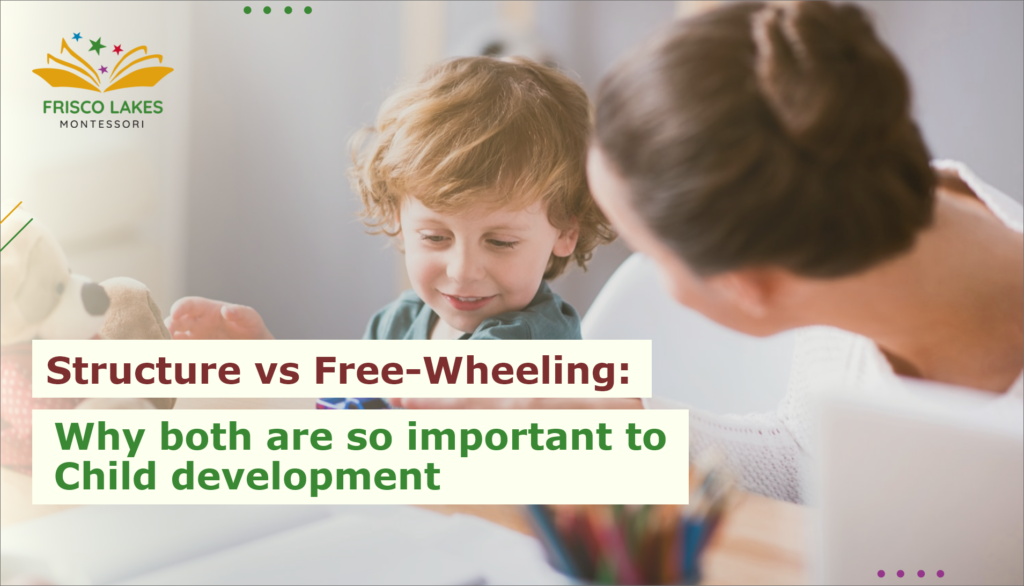Montessori child development centers on the idea that children learn best through self-directed exploration and play. This approach emphasizes structured and free-wheeling activities, recognizing that both are important for a child’s holistic development.
Structured play, such as games and activities with clear rules and objectives, helps children develop social skills, discipline, and focus. On the other hand, free play, or unstructured exploration, encourages creativity, curiosity, and problem-solving skills. In this blog post, we’ll explore the differences between the two and how Montessori approaches play to nurture a child’s natural curiosity and love for learning.
What Is Free Play?
Free or open-ended play is any activity that doesn’t involve rules, instructions, or guidelines. There isn’t one way to complete an activity, so children can use their imagination and creativity without limitations.
What Is Structured Play?
Structured learning is designed to teach children new skills, typically cognitive or physical. Also called goal-oriented play, structured play involves activities rooted in the real world with a specific purpose. During these activities, children are introduced to new concepts and opportunities to enhance their development and learning abilities to set the foundation for focus and attention.
Structure vs Free Wheeling
Instead of labeling one form of play as better than the other, it’s important to keep in mind that both are necessary for holistic childhood development – physical, emotional, social, and intellectual. Finding this balance creates harmony and purpose, enabling children to become independent, self-confident individuals laying the foundation for the rest of their lives.
How Does Montessori Approach Play?
A common misconception is that Montessori education doesn’t involve playtime. Activities are considered work, but that doesn’t mean they’re not a form of structured play.
In Montessori lingo, “work” refers to the natural curiosity and innate drive to explore and learn, which is essentially playing with purpose. This term was founded by Dr. Maria Montessori, who said, “play is the work of a child.” When you love your job, it doesn’t feel like work; the same applies to Montessori academics!
Combining Structure and Free Wheeling: The Montessori Way
The Montessori method is learning through play. When children are free to explore their unique interests within a supportive, structured environment, they can better absorb concepts and apply the skills they’ve learned in the real world and during free play. Students who are engaged and having fun while learning see continuous improvement because they connect with their educational journey and understand the “why” behind their lessons.
The Leading Montessori School in Frisco, TX
Frisco Lakes Montessori is a premier member school of the American Montessori Society and is licensed by the State of Texas as one of the top private schools in Frisco. Our mission is to prepare children for life and help them realize their full potential through holistic child development and self-guided learning with continuous progress.
We use structured learning and free play to encourage each child’s innate curiosity and channel it into core developmental skills that lay the foundation for the rest of their lives. Ready to join our mission of academic excellence? Schedule a tour of our facility today and see our students in action!

